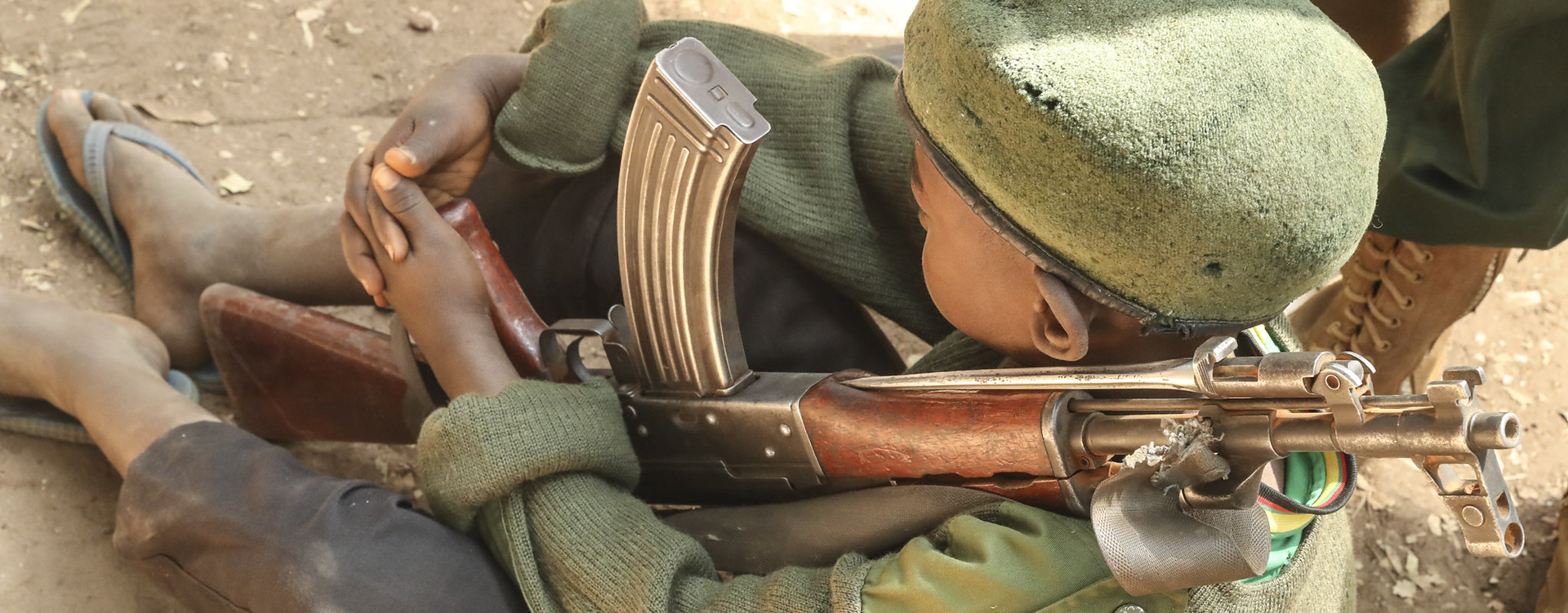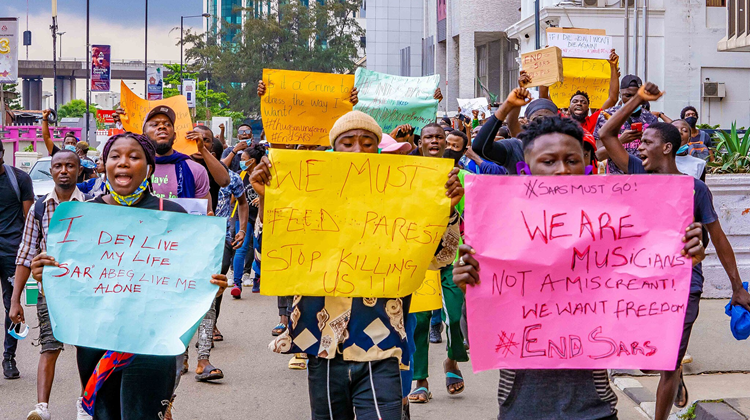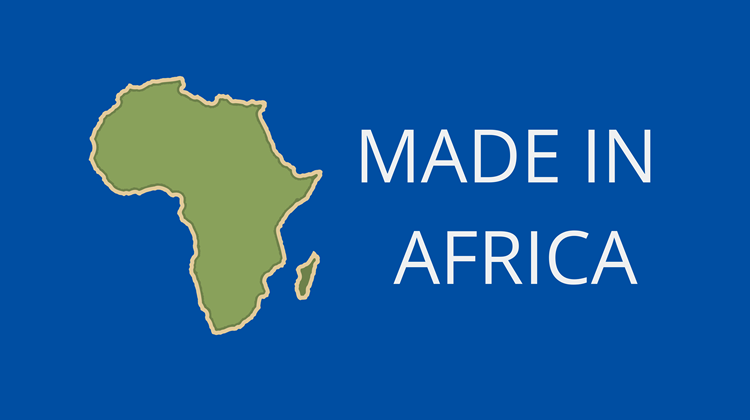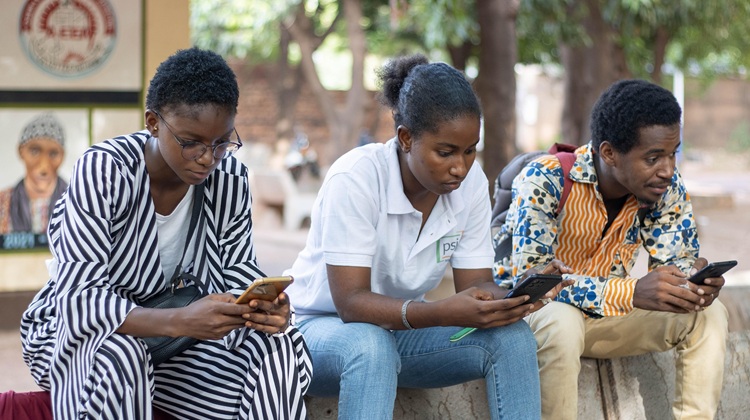Ending the exploitation cycle of child soldiers in Africa

Child recruitment must be tackled through collaborative efforts, funding allocation and policy enforcement at national and regional levels.
Africa’s future relies on its youth, yet many face systemic challenges and economic barriers, hindering their potential. Rising unemployment is fueling dissatisfaction with governments and driving young people to seek change. However, weak governance and limited opportunities leave many vulnerable to exploitation. A significant issue is the recruitment of children as child soldiers by violent non-state actors, violating their rights and international humanitarian law.
Children (youth under the age of 18) typically join armed groups through abduction or coercion, where they are recruited as soldiers, lookouts, porters, spies, cooks, or sexual slaves with little choice due to harsh conditions and often subject to gender-based violence (GBV). Girls are especially vulnerable, often forced into roles as spies, cooks and fighters. Some are compelled into marriages with combatants in countries like Iraq, DR Congo, the CAR, and South Sudan.
In Africa, corruption and a lack of transparency in governance worsen the recruitment of child soldiers, undermining efforts to protect vulnerable children and allowing exploiters to act with impunity. Despite numerous local and international initiatives, the statistics remain alarming. Over the past five years, approximately 21 000 children have been recruited by government forces and regional armed groups across the continent. In 2021, 6 310 children—including 5 707 boys and 603 girls—were drawn into conflict zones globally, with Africa accounting for 40% of the global child soldier population, estimated at around 250 000 children.
From 2005 to 2022, over 105 000 children worldwide were documented as recruited by armed forces and non-state actors in conflict zones. In 2020, around 337 million children lived within 50 kilometres of active conflicts, with 118 million in Africa, where one in six children faced the risk of recruitment. Africa's youthful population, with 40% aged 15 or younger, has seen rising violence, particularly in the Sahel, where Islamist insurgencies are expanding. A 2021 United Nations report highlighted West and Central Africa as the regions with the highest verified child soldier recruitment from 2016 to 2020. Globally, nearly 40% of child soldiers are female. In Burkina Faso, a jihadist insurgency has caused a fivefold increase in child soldier recruitment this year alone.
In 2022, UNICEF provided reintegration or protection support to nearly 12 500 former child soldiers and informed over nine million children about avoiding explosive remnants of war. As the child protection crisis worsens, it is estimated that US$1.05 billion will be required by 2024, increasing to US$1.37 billion by 2026, to meet the protection needs of children in armed conflict.
It is estimated that US$1.37 billion will be required by 2026 to meet the protection needs of children in armed conflict
The economic impact of child soldiering significantly hampers national development. Missing out on schooling results in lost human capital and reduced productivity, contributing to long-term economic stagnation, decreased workforce participation, higher poverty rates, and reduced foreign investment due to ongoing instability. Additionally, countries incur increased social service costs related to the healthcare and legal needs of former child soldiers, along with the social instability arising from reintegration challenges.
The potential economic contribution of these individuals is substantial; for example, lost earnings over a 30-year period could reach hundreds of thousands of dollars per child.
Efforts and challenges in addressing child recruitment
Child recruitment by violent non-state actors and state governments remains a critical issue despite international commitments, with 196 countries ratifying the Convention on the Rights of the Child and 173 countries ratifying the Optional Protocol on the Involvement of Children in Armed Conflict (OPAC), which prohibits the recruitment of children under 18 years of age.
The Economic Community of West African States (ECOWAS) has taken significant steps to combat this problem through a coordinated approach focused on prevention, protection and reintegration. The ECOWAS Child Policy (2019-2030) demonstrates a long-term commitment to preventing child recruitment by promoting community awareness, legal reform, and addressing the social and economic factors. ECOWAS stands out for its regional approach, its Child Protection Unit and comprehensive Disarmament, Demobilisation, and Reintegration (DDR) programs. Other regions also implement robust DDR initiatives but are facing unique hurdles such as logistical and security challenges, often relying heavily on international support.
ECOWAS adopts a proactive approach that focuses not only on creating laws but also on enforcing them, ensuring that violators face significant consequences and that child protection policies are effectively implemented rather than merely existing as formal declarations. The organisation has established monitoring and reporting mechanisms to collect data on child recruitment and to hold perpetrators accountable. However, recent coups and the withdrawal of Burkina Faso, Mali and Niger from ECOWAS have weakened the effectiveness of the Child Policy.
Over the last twenty years, there have been DDR programs in more than 30 countries globally. About two-thirds of these countries have been in Africa. DDR programs have successfully provided access to education, vocational training and psychological support, enabling former child soldiers to reintegrate into their communities, which reduces stigma and re-recruitment risks. The sustainability of long-term solutions and increased funding are essential for effective DDR programs. Collaboration among governments, NGOs and international organisations is vital to achieve the objectives of SDG 16, which aims to protect and reintegrate children affected by conflict.
ECOWAS promotes community-based reintegration approaches, engaging local leaders, schools and civil society to ensure former child soldiers are accepted and supported. This involvement is crucial for fostering social cohesion and stability. However, challenges persist, including financial constraints, political instability and cultural barriers that continue to facilitate child recruitment. A lack of accurate data on child soldiers and intervention effectiveness hampers the monitoring and evaluation of DDR programs.
Political instability in certain regions hampers child protection and disrupts rehabilitation for former child soldiers. Although these countries pledge to reintegrate minors from armed groups, ongoing conflicts often lead to re-recruitment. Cultural norms can reinforce child recruitment, and specialised care for trauma and mental health is limited, with few programs offering combined support in education, vocational training and mental health.
Corruption further undermines child protection, diverting resources from essential services and eroding public trust, which deters communities from reporting abuses. In corrupt environments, legal accountability is weak, allowing child exploitation to go unpunished. This neglect perpetuates violence and exploitation, harming future generations.
Effective prevention requires addressing conflict and inequality, and strengthening child protection systems at all levels. High-risk countries must prioritise comprehensive services for child soldiers, including health care, education, protection, psychosocial support and livelihoods.
To prevent child recruitment, efforts must operate on both macro and micro levels—addressing insecurity, conflict resolution and inequality, and strengthening national and community-based protection systems
The development of state-level laws prohibiting the recruitment and use of child soldiers should be prioritised across Africa, and the UN mechanisms as implemented through the UN Security Council resolution 1612 should be reinvigorated to apply pressure on member states to take greater proactive action on the recruitment and utilisation of child soldiers. The conviction of Thomas Lubanga Dyilo from DR Congo by the International Criminal Court for recruiting and utilising child soldiers provides an example of how the international legal system can deter the use of child soldiers.
Solutions for reintegration and resilience
To build an inclusive and prosperous future in Africa, regional and national policies must prioritise the social and economic reintegration of current and former child soldiers, empowering them to contribute positively to their communities and the continent’s growth. Countries and state allies must refrain from recruiting and using child soldiers in their military forces, which is an ongoing challenge.
Reintegration strategies must strengthen local communities to effectively reintegrate former child soldiers, fostering environments that prevent re-recruitment and promote sustainable development. Achieving this requires addressing not only socio-economic factors but also the long-term impacts of child soldier recruitment on national security and development, where the continuation of conflict disrupts growth and stability, and the trauma faced by former child soldiers can hinder productive social reintegration and future development goals.
Corruption poses a critical obstacle, as it impedes child protection efforts and erodes public trust. Increasing transparency in child protection initiatives is essential to ensure resources reach the vulnerable and that communities feel empowered to report abuses. Moreover, involving former child soldiers in policy discussions can significantly enrich the development of relevant and effective reintegration programs, helping policymakers understand the lived experiences and needs of these individuals. This approach supports the larger goals of peace, stability, and a secure future for African nations affected by conflict.
Image: UNMISS/Flickr






